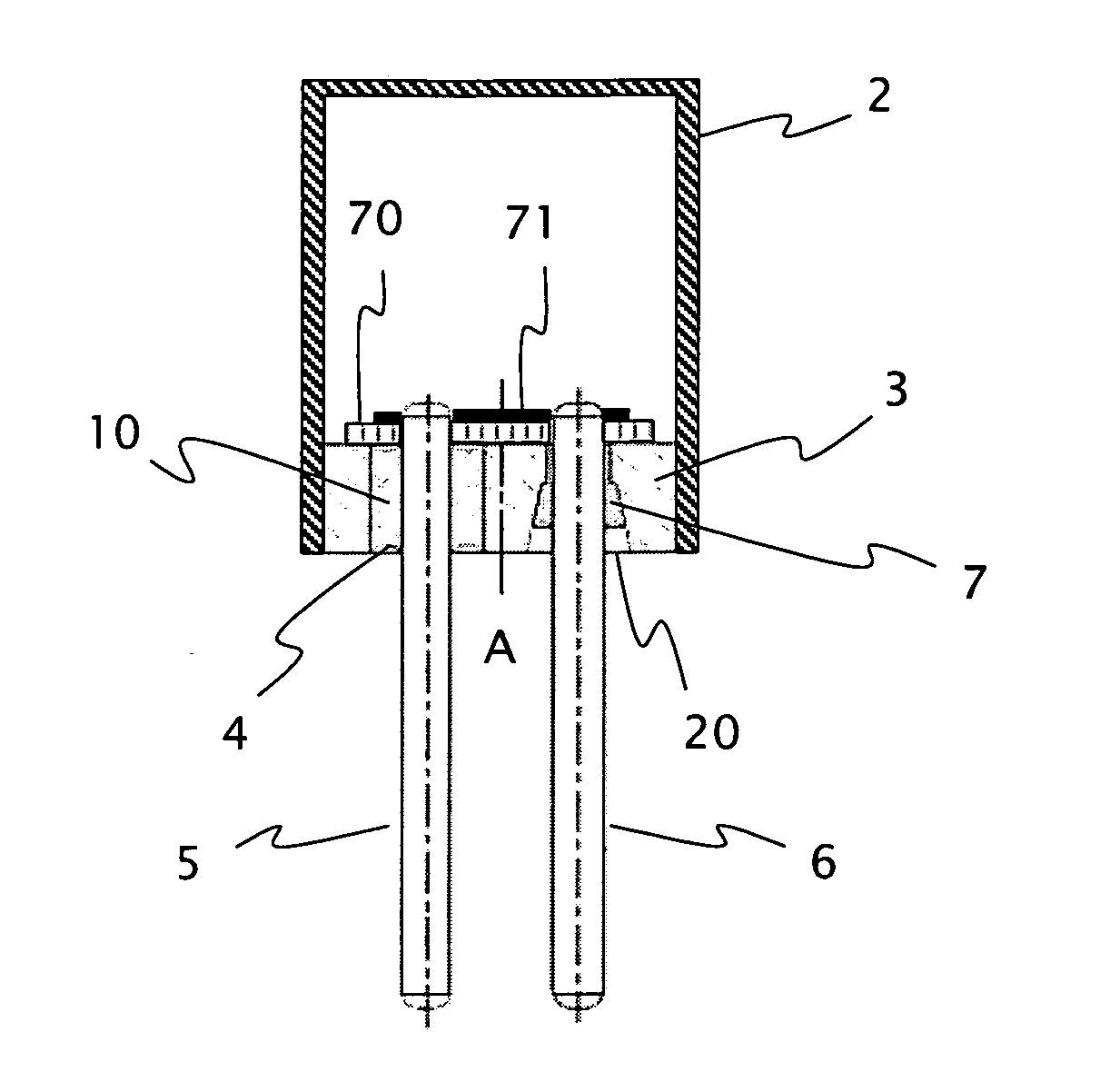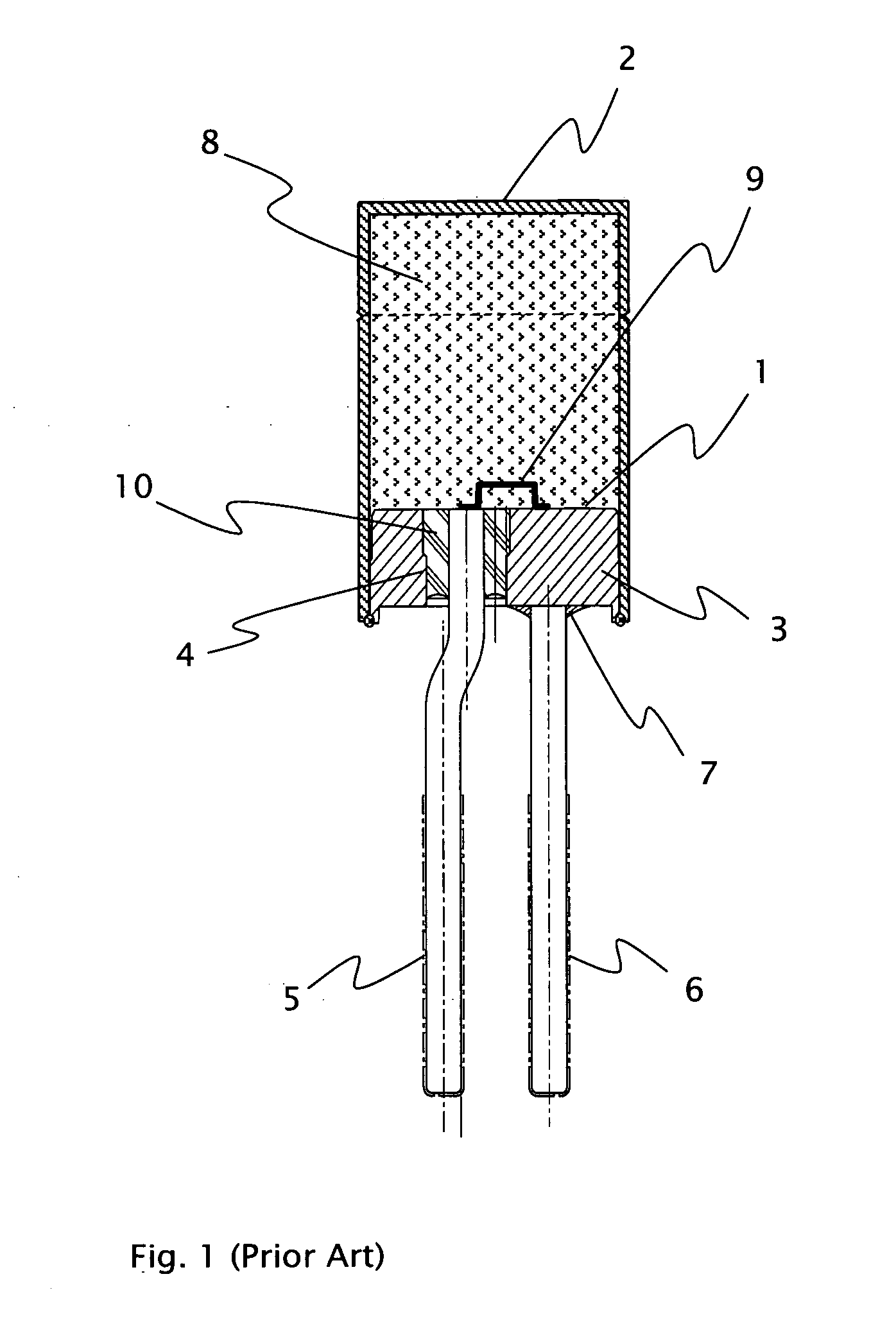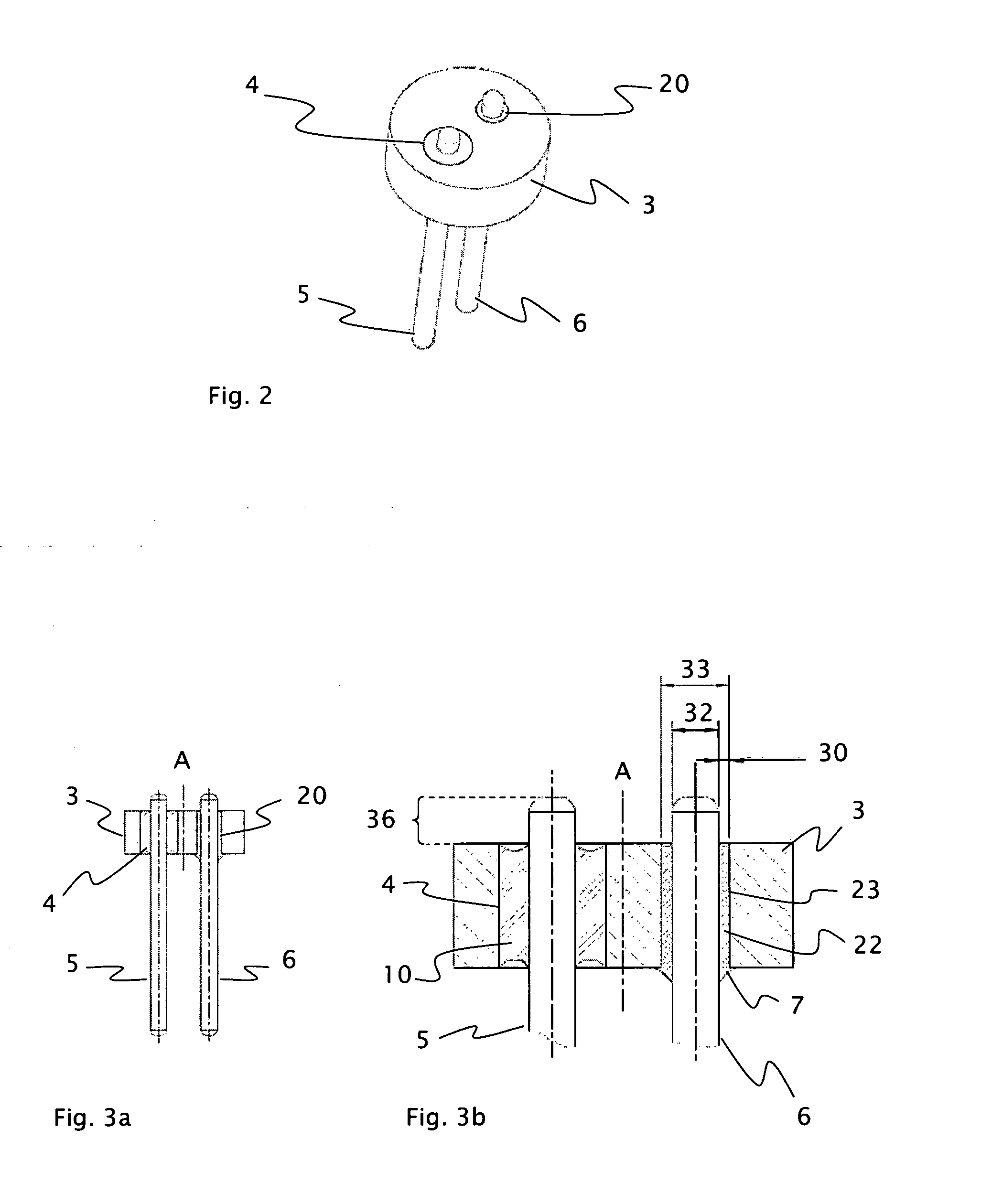Shaped feed-through element with contact rod soldered in
a contact rod and feed-through element technology, applied in the field of feed-through elements, can solve the problems of increased production cost, increased process cost due to the surface grinding of glass materials, and increased production cost, and achieve the effect of reducing production cost and system cos
- Summary
- Abstract
- Description
- Claims
- Application Information
AI Technical Summary
Benefits of technology
Problems solved by technology
Method used
Image
Examples
Embodiment Construction
[0072]FIG. 1 represents a known ignition device for a pyrotechnic protection device according to the prior art. FIG. 1 shows in particular a sectional view of the feed-through element (1).
[0073]The feed-through element (1) comprises a shaped metal carrier part having a support body (3), which has a disc-shaped base shape. The feed-through element (1) is often also referred to as a base element or base for short. In order to avoid corrosion or reaction with the propellant charge, stainless steel is used as the material for the support body (3) in this ignition device, even though this material is more difficult to shape than many other metals.
[0074]In a first access opening (4) of the support body (3), a metal rod (5) is furthermore arranged as a pin. The access opening (4) has in this case been stamped from the support body (3). This likewise applies for the outer contour of the support body (3). In other embodiments, this access opening is drilled.
[0075]The metal rod (5) is used fo...
PUM
| Property | Measurement | Unit |
|---|---|---|
| Time | aaaaa | aaaaa |
| Thickness | aaaaa | aaaaa |
| Diameter | aaaaa | aaaaa |
Abstract
Description
Claims
Application Information
 Login to View More
Login to View More - R&D
- Intellectual Property
- Life Sciences
- Materials
- Tech Scout
- Unparalleled Data Quality
- Higher Quality Content
- 60% Fewer Hallucinations
Browse by: Latest US Patents, China's latest patents, Technical Efficacy Thesaurus, Application Domain, Technology Topic, Popular Technical Reports.
© 2025 PatSnap. All rights reserved.Legal|Privacy policy|Modern Slavery Act Transparency Statement|Sitemap|About US| Contact US: help@patsnap.com



